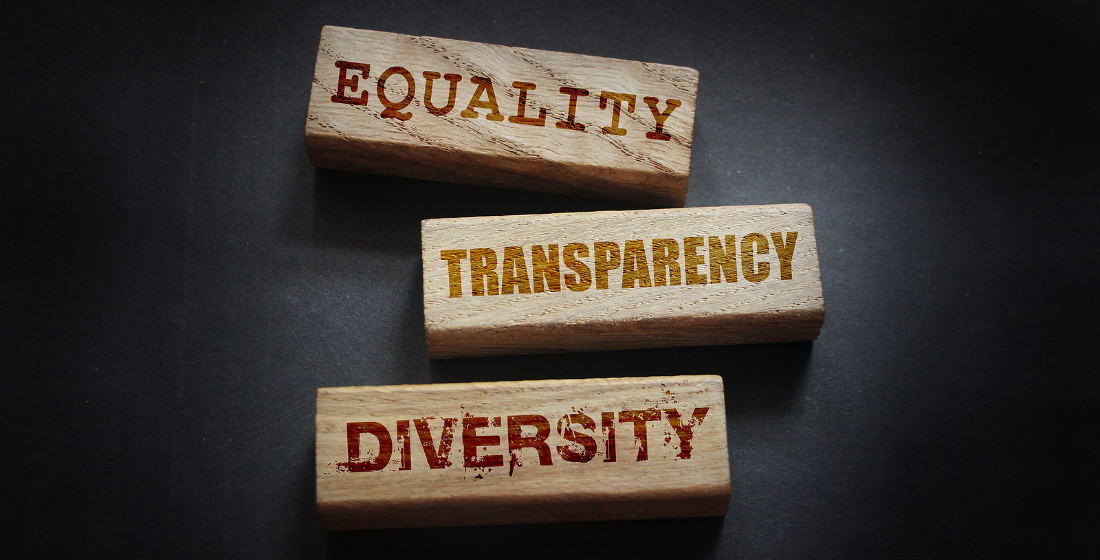TXF Stages for Change 2020: Top takeaways and actions
On 17 July, TXF gathered a diverse group of trade finance professionals to celebrate our female and minority leaders. TXF’s Eavie Burnett highlights a few of the conclusions that were reached.

Diversifying trade finance has been a priority for businesses over the past years. But how do we ensure that good intentions translate into positive action? TXF’s Stages for Change initiative brings together senior and junior professionals to share ideas, network, and set out a roadmap for a more inclusive industry. Crucially, we listen to our female leaders share industry related insights that provoke pertinent conversations about the economic situation we find ourselves in. With this approach, we look to educate newer recruits with the information they’ll need to succeed, while also increasing visibility of female and minority leaders in senior positions. We therefore promote diversity via access, networking, education, and visibility.
On 17 July, TXF gathered professionals from a range of trading backgrounds for a virtual event celebrating our female and minority leaders. Here are just a few of the conclusions we came to:
We’re shopping, eating, and smoking more
Dr Rebecca Harding, CEO at Coriolis Technologies, gave a data-driven overview of the impact of the Covid-19 crisis on the trade landscape. “Covid-19 means that the world of trade will never be the same again,” says Dr Harding. Packaging (which facilitates shopping), cocoa products, confectionary, and tobacco sales remain high – perhaps speaking to our individual experiences of lockdown.
The significant drop in the price of oil has certainly put commodity markets in jeopardy. Of course, this will disproportionately impact smaller commodity-linked emerging market economies that rely on oil production as the gateway to economic sanctuary, including countries across Africa, the Middle East, and Latin America.
But arms trade hits five-year high as protectionism skyrockets
Since the pandemic took hold, 95% of countries have taken a more protectionist stance. Although largely associated with the US, the EU is not immune: Germany has been the only member country to adopt a more liberal supply chain model in the wake of the pandemic. This increased protectionism correlates with a burgeoning arms trade that is projected to outperform all other sectors by a significant margin. Although there was a decrease in arms trading over the last five years, the post-Covid 19 economy looks to provide the sector with a spike in activity.
Trillions of investment needed into sustainability, but we must caution against greenwashing
As organisations face increasing governmental and public pressure to become more sustainable, and governments look to rebuild economies around SDGs, the interest in green bonds and projects is soaring. Hayley Humphreys, sustainability analyst at Czarnikow, says the industry requires significant moderation to ensure that greenwashing doesn’t eclipse the commendable efforts that many are making.
Borrowers and financiers must encourage traceable supply chains where goods can be fully tracked from producer to end user. Monitoring this can be complex: a renewable energy company, for example, could have poor working conditions throughout the supply chain which means that significant work still needs to be done to validate its ‘greenness’. Solutions must have a goal of continuous progress rather than relying on prohibitive ‘pass or fail’ criteria that smallholders in particular struggle to access. Third party verification is a vital tool here - via rating agencies such as Sustainalytics - and, crucially, schemes must be financially incentivised to offer participants return on investment for committing to sustainability.
Africa is a market of opportunities, but significant gaps must be addressed to optimise its supply chains
Viola Llewelyn, CEO and co-Founder of Ovamba Solutions, explored the $360 billion credit gap facing the informal sector in emerging markets. A series of gaps in the supply chain prevent smaller ‘mom and pop shops’ from accessing the finance they need to make Africa a vital contributor to the global economy. Pertinently, these gaps make it particularly difficult for women to enter the economy. Indeed, cultural understandings of business and value mean that the contribution that African women make to the economy often goes uncounted.
In the first instance, a lack of physical and digital infrastructure complicates the transportation of goods and services within the continent. Further, many supply chains still use outdated colonial models that prevent African countries from completing successful internal manufacturing. All too often, raw materials produced on the continent are shipped elsewhere for processing, before returning to their African country of origin for sale. This represents a huge missed opportunity for value conservation on the continent, one which may be plugged by the now ratified African Continental Free Trade Area alongside wider supply chain reform.
Perhaps most importantly, although Africa has long been ahead of the curve when it comes to mobile payments, there remains a pivotal sticking point: mobile wallets and digital payments are not often compatible with conventional bank accounts required to complete transactions. When these inefficiencies are addressed, Africa will be a vital contributor to global growth.
Data-led strategies are the key to workplace diversity – but it will take time
For an organisation to make real progress, it must adopt a robust strategy that encompasses the business as a whole. For too long, diversity has been cocooned in its own Development & Inclusion (D&I) department which can hamstring efforts to incorporate inclusion into a business’ core structure.
Crucially, we lack the data needed to give us a full understanding of the task underway and how to tackle it. Metrics on the number and types of jobs that women undertake in finance are lacking, and there is an even further dearth of data when it comes to ethnicity and less ‘visible’ markers of diversity such as disability, sexuality, and care responsibilities.
Of course, collecting this information can be sensitive, as many do not want to be considered the ‘diverse’ team member based on one aspect of their identity. It is vital that data is collected mindfully, and that it is only used as part of a broader strategy to make tangible changes to the working environment.
We must remain vigilant, as change does not happen overnight. Today, we are starting to see the fruits of increased entry level female hiring in the legal industry, as some of these women are now being promoted to partner level. We still have a long way to go, but putting strategies in place now creates a strong roadmap for a more inclusive future.
But we need to diagnose our specific issues first
Diversity is an umbrella term that encompasses a range of experiences and workplace failings. To truly diversify our workforce, we must clearly diagnose the specific issues our organisation faces in order to implement the best solutions. For example, the legal profession tends to hire a roughly 50/50 gender split; the issue is retaining that talent to the point where women are promoted to partner level and other senior roles. It would therefore be a waste of time to focus only on hiring more women at entry level; efforts would be better placed in female talent retention.
When it comes to entry level positions, there is a far wider dearth in black applicants, particularly black women, which must be addressed. While the trade finance industry cannot address all socioeconomic barriers that prevent black individuals applying for jobs, we can make the workplace more welcoming and accepting to people from different backgrounds. An organisation’s approach to diversity must be intersectional, considering how marginalisation in finance extends beyond just white women and into a range of intersecting groups from different backgrounds.
Organisations must be the ones to bear the burden
Crucially, it is not the responsibility of marginalised individuals to bear the burden of diversifying the workplace. In the wake of the Black Lives Matter movement, some organisations erroneously place the pressure on black staff to share often traumatic experiences of workplace racism. Additionally, some black staff report having been recruited onto diversity or anti-racist advisory boards purely by virtue of being black – and with no additional remuneration. It must be the responsibility of organisation leadership, particularly white leaders, to put in the labour that creates a more accepting workforce – be that through changing internal cultures or diversifying the hiring process.
Lockdown might have us working flexibly, but it could render already less visible groups entirely invisible
Organisations have been focused on their response to the pandemic, including making provisions for remote working. With this in mind, the issues around diversity and inclusion could become a ‘nice to have’ rather than a necessity.
Working from home looks like it could be the new normal, but this comes with the danger of rendering marginalised communities even more invisible. An office environment allows staff to be closer to influential leaders within the organisation; without access to these individuals, marginalised groups miss out on opportunities for personal growth. By working from home, they will be physically less ‘seen’ as a vital member of the team. This particularly impacts junior recruits and younger members of staff.
On top of this, many companies haven’t taken on interns this year. This could mean that we’ve created a ‘lost generation’, whereby a year’s worth of graduates will not have the opportunity to show their promise in the workplace. In an industry like trade, which so often relies on documentation and bills of lading that can’t easily be digitally replicated, this opportunity gap could be catastrophic.
A note from our co-Founder
“Black Lives Matter opened up my eyes to the fact that it isn’t enough to be simply not racist. One must be actively anti-racist. And I feel the same way about women - and other underrepresented groups - in the workplace. For those of us, male or female, who are in senior positions, it is our duty to be actively pro-equality and to take positions and stances and decisions that reflect that. We should be mentors and provide sources of inspiration, but we should also actively pursue an equality agenda boldly if we have the voice and authority to do so.” Katy Rose, Director and Co-Founder, TXF
For more information on the Stages for Change initiative, visit our website. You can watch a replay of TXF Stages for Change 2020 here.
Now time to get up to speed with the markets
Here's a selection of original TXF Subscriber articles recently published
Mercuria’s European refi: The end of costly 'Covid-19 premiums'?
Mercuria sealed tight pricing on its European RCF refinancing despite sounding out banks in the midst of the pandemic. The deal signed when other investment grade commodity-linked borrowers were hit with more hefty ‘Covid-19 premiums’.
TXF TV: The Libor transition
TXF’s co-founder Dominik Kloiber is joined by Ashley Mcdermott, a partner at Mayer Brown, and Aida Topcagic, VP for global export finance at JP Morgan to outline the complicated issues surrounding the Libor transition set for 2021, and to raise awareness around future Libor replacements.
Shop talk: VTB on combating trade loan turbulence
TXF spoke with Anna Ponomareva, head of ECA and agency finance at VTB to discuss the challenges the Russian bank has faced in responding to the Covid-19 crisis, as banks and customers demand more strict trade loan requirements.
IFC issues EoIs for offshore wind finance analysis
The IFC has issued expressions of interest (EoI) to companies for an analysis of fixed offshore wind financings in emerging markets. Firms have until 3 August to submit responses.
DEWA V solar PV nears financial close
An ACWA Power/GIC team has mandated nine banks for the latest Dubai Electricity and Water Authority (DEWA) 900MW solar PV scheme, the fifth phase of the 5GW Mohammed Bin Rashid Al-Maktoum solar park in Dubai.
Leviathan Bond on roadshow
Delek Drilling is out to market with a proposed $2.25 billion bond issue, proceeds from which will take out the $1.75 four-year construction financing Delek raised in 2017 for its share of the Leviathan gas project off the cost of Israel.
Sonnedix Spain signs portfolio financing
Sonnedix – via Sonnedix Holdco Spain – has raised a €154.4 million ($181.5 million) seven-year financing for a 153MW portfolio of 62 solar PV projects: Selene (42 plants, 98.4 MW), Cefalo (7 plants, 18.2 MW) and Limero (13 plants, 37.3 MW).
Pemcorp gas-fired plant refi to sign next month
Arroyo Energy is expected to refinance the DFI-backed debt package stapled to the 131MW Pemcorp simple-cycle gas-fired project in Mexico. Financial close is expected next month.
AIIB mulls over Indian solar project financing
Ayana Ananthapuramu Solar - a project vehicle comprising Green Growth Equity Fund (25.5%); National Investment and Infrastructure Fund (25.5%) and CDC Group (49%) - is out to banks for its $152 million 250MW solar energy project in southern India.
UK's business secretary eyes national development bank
The UK's business secretary, Alok Sharma has privately put forward the idea for a national development bank, which is expected to encompass areas such as export finance, procurement and small and medium-sized businesses.
Southwest Generation closes on Mankato Energy Center acquisition financing
Southwest Generation – via special purpose vehicle MEC Holdings – has reached financial close on $496.4 million of debt to part finance its $680 million acquisition of the Mankato Energy Center in Minnesota from Xcel Energy.
Leviathan pricing guidance issued
Pricing guidance is out on the $2.25 billion Leviathan bond, proceeds from which will take out the $1.75 four-year construction financing Delek Drilling raised in 2017 for its share of the Leviathan gas project off the cost of Israel.





